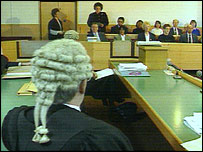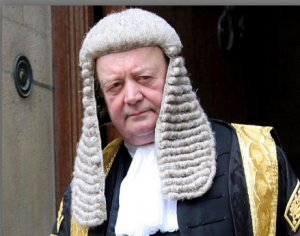Law Weblog
Jurors not allowed to research internet or social networking sites
Thursday 15 July 2010 at 3:46 pm | In News | Post Comment Lord Justice Judge Lord Justice Judge issued new guidance at the Court of Appeal, about jurors in criminal trials using the internet. Sitting with Lord Justice Hughes and Mr Justice Bean, he said: “We recommend a direction in which the principle is explained not in terms which imply that the judge is making a polite request, but that he is giving an order necessary for the fair conduct of the trial,” he said.He said using the material to help make decisions could result in a conviction being quashed; this includes research and discussions on social networking sites.
Lord Judge made his comments in a judgement relating to six appeals in which there had been allegations of jury irregularities.
“Research of this kind may affect their decision, whether consciously or unconsciously, yet at the same time neither side at trial will know what consideration might be entering into their deliberations and will therefore not be able to address arguments about it.
“This would represent a departure from the basic principle which requires that the defendant be tried on the evidence admitted and heard by them in court,” he said.
However, Lord Judge stressed that most trials continued without the inclusion of “extraneous material” and said: “Allegations of this kind rarely trouble the Court of Appeal.”
Prison works – prison doesn’t work
Thursday 15 July 2010 at 3:30 pm | In News | Post Comment The Lord Chancellor, Kenneth Clarke has re-opened a debate about prison numbers.Figures show that, between 1993 and 2010 the prison population in England and Wales rose from 44,500 to 85,000. During the same period, crime fell by a half from 18.5m offences. This appears to suggest that as crime fell by just under a half at the same time as the prison population grew by nearly a half, prison works. A similar trend has been seen in the United States.
However, Clarke argues that there is no “direct correlation” between prison numbers and crime rates. The fall in the crime rate during the 1990s, he suggested, was more down to his policies as chancellor than Michael Howard’s as home secretary.
A confidential strategy unit report drawn up in 2006 argues that 80% of the recent decrease in crime is due to economic factors. Crime fell again today with figures released showing a 9% fall.
Clarke’s argument is supported by other data. Between 1951 and 1971 the prison population doubled, while during the same period police-recorded crime trebled. Between 1971 and 1991 recorded crime trebled whilst prison numbers remained largely unchanged.
Monday 12 July 2010 at 10:15 pm | In News | Post Comment The Office for Judicial Complaints (OJC) inquiry into Judge Gerald Price QC was launched following allegations made in the News of the World about his conduct with a male prostitute.
The inquiry recommended the judge be sacked but Price resigned this afternoon after a failed appeal and before the disciplinary process was formally concluded.
It is unheard of for a judge to be sacked and this is the nearest to a dismissal that has occured in recent times.
Report in the Guardian
Powered by WordPress with Pool theme design by Borja Fernandez.
Entries and comments feeds.
Valid XHTML and CSS. ^Top^


